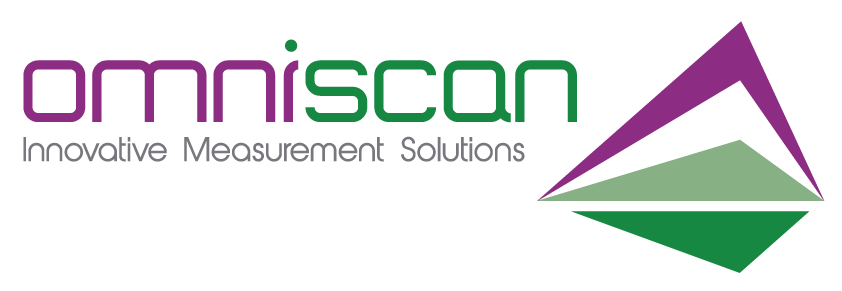At Omniscan, we specialise in surface and structural analysis solutions that bring clarity to even the most complex manufacturing challenges. One area of growing importance across industries is layer thickness measurement – a fundamental parameter that directly affects product performance, durability, and compliance.
Whether you’re dealing with coatings, films, platings, or multi-material composites, knowing the exact thickness of each layer isn’t just a matter of quality – it’s a strategic advantage.
What Is Layer Thickness Measurement?
Layer thickness measurement involves determining the depth of individual layers in a coated or laminated material. These layers can range from metallic coatings and polymer films to oxide layers, adhesives, and paint. Depending on the application, thickness can be measured in nanometres or millimetres, and the required accuracy is often in the micrometre range or finer.
At Omniscan, our non-destructive techniques ensure that measurements are taken with precision, speed, and without damaging the product.
Why Is It Critical?
Incorrect layer thickness can lead to:
- Functional failure: Too thin, and protective coatings may degrade early. Too thick, and they may crack, peel, or interfere with mechanical tolerances.
- Increased costs: Over-coating means wasted materials, while under-coating risks product recalls or reduced lifespan.
- Regulatory issues: Many industries are subject to strict standards regarding material thickness, especially in aerospace, automotive, and medical manufacturing.
With accurate, real-time layer thickness data, manufacturers can control processes more tightly, reduce waste, and ensure products perform exactly as intended.
Who Relies on Layer Thickness Measurement?
Layer thickness measurement is vital across a wide spectrum of sectors:
- Aerospace and Defence: Where protective coatings and thermal barriers are essential for safety and performance.
- Automotive Manufacturing: Ensuring consistent paint application and corrosion-resistant coatings on body panels and engine parts.
- Electronics and Semiconductors: Measuring thin films and conductive layers that affect device functionality and heat dissipation.
- Medical Devices: Where implant coatings and drug-eluting layers must meet precise specifications for biocompatibility and performance.
- Renewable Energy: In solar panels and batteries, where layer uniformity affects efficiency and longevity.
- Materials Science and R&D: Supporting the development of new coatings, treatments, and manufacturing techniques.
In research environments, precision in layer measurement enables scientists to better understand interactions at material interfaces, improving design at the nanoscale.
The Omniscan Advantage
Omniscan offers a range of high-resolution, non-contact systems designed to handle both single and multilayer materials with ease. Our solutions are tailored to high-throughput industrial environments as well as cutting-edge research labs. By using optical, ultrasonic, and eddy current technologies, we can measure even the thinnest layers with outstanding repeatability and accuracy.
Our approach not only improves quality assurance but also feeds valuable data into your process optimisation efforts, helping you stay ahead in competitive, technology-driven markets.
Drive Consistency, Ensure Compliance, and Reduce Costs
Accurate layer thickness measurement isn’t optional – it’s essential for delivering reliable, high-performance products. With Omniscan’s advanced metrology solutions, you gain the confidence that every layer meets specification, every time.
Looking to enhance your coating processes or validate thin film research? We’re ready to support your precision goals. Get in touch today.


